Training
01
WorkShop #1
13 FEB. 2023
1st Workshop
Prison’s framework
On Monday, February 13th of 2023, the first workshop of ACTinPRISON, for prospective teachers training, was implemented at the University of Thessaly.
The social worker of Special Rural Juvenile Correctional facility of Kassaveteia, Leonidas Kotoulas, presented the concept of delinquency and the institution of prison, while exploring the motivations of the university students in engaging in communication with young detainees. About 30 students/prospective teachers actively participated in the workshop posing interesting questions about the institution and life inside prison; about its spaces and the people who work or are detained there, as well as about its function and its relationship with the local society.
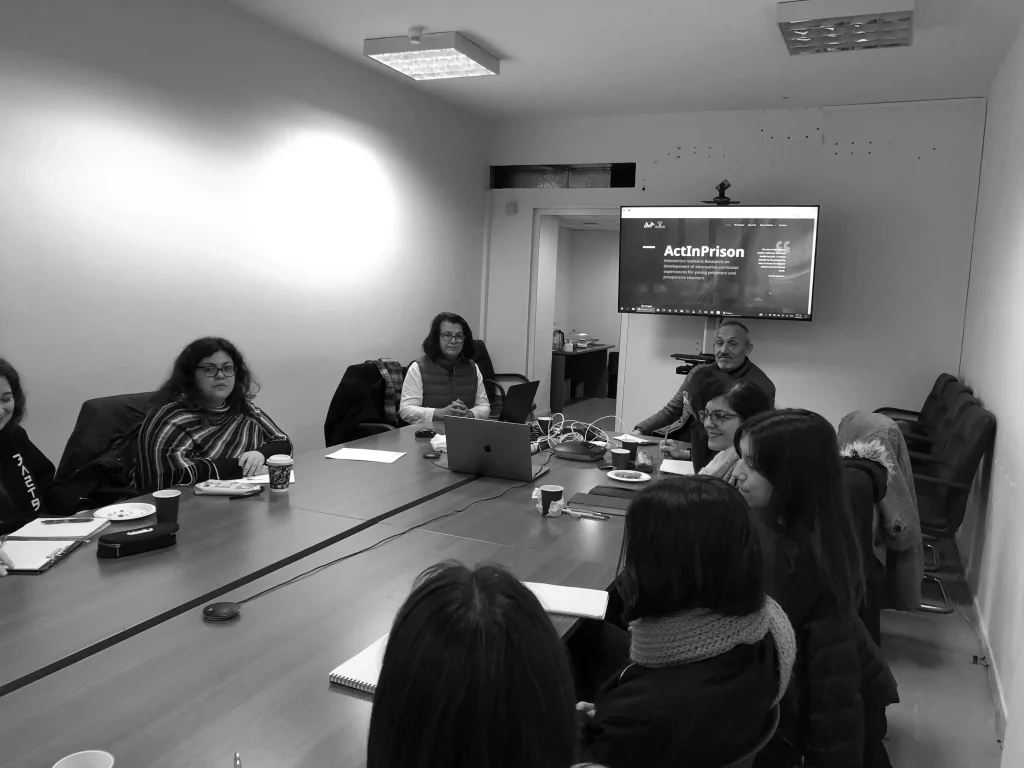
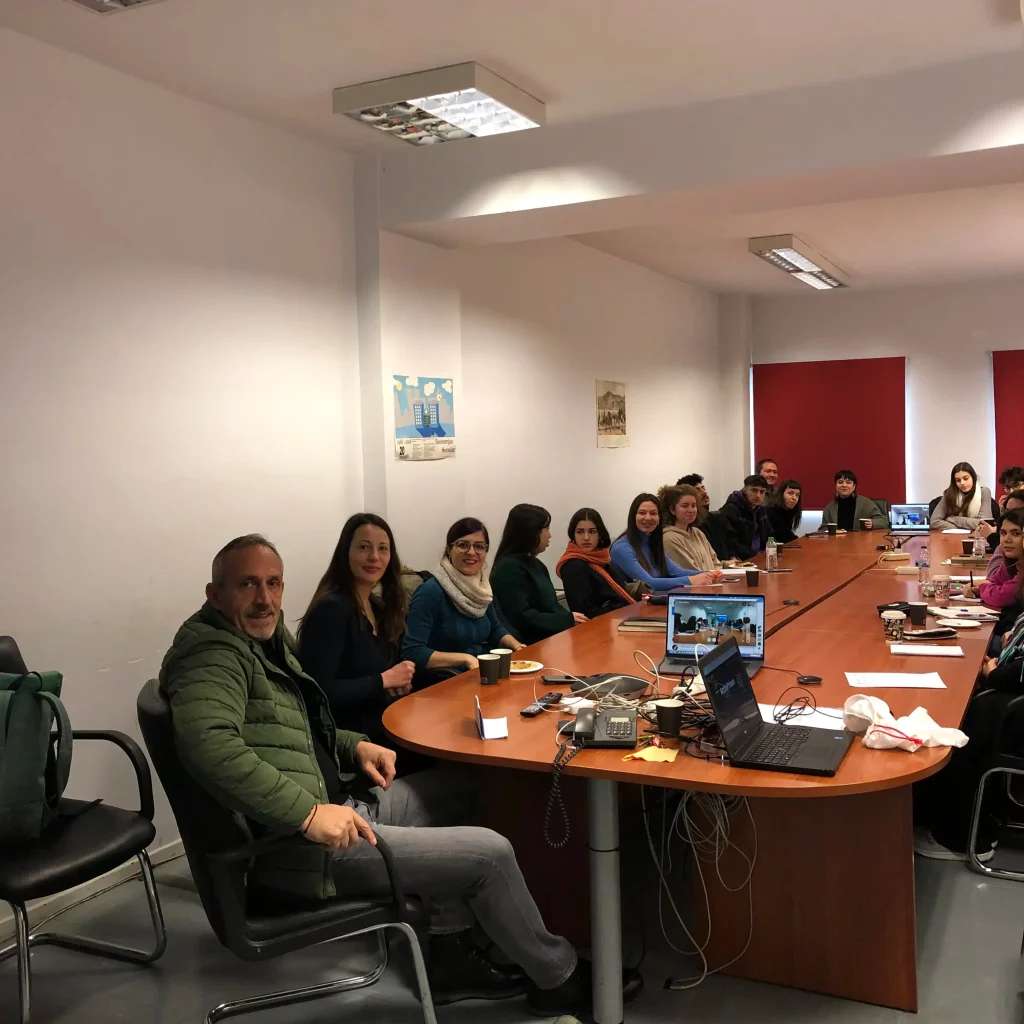
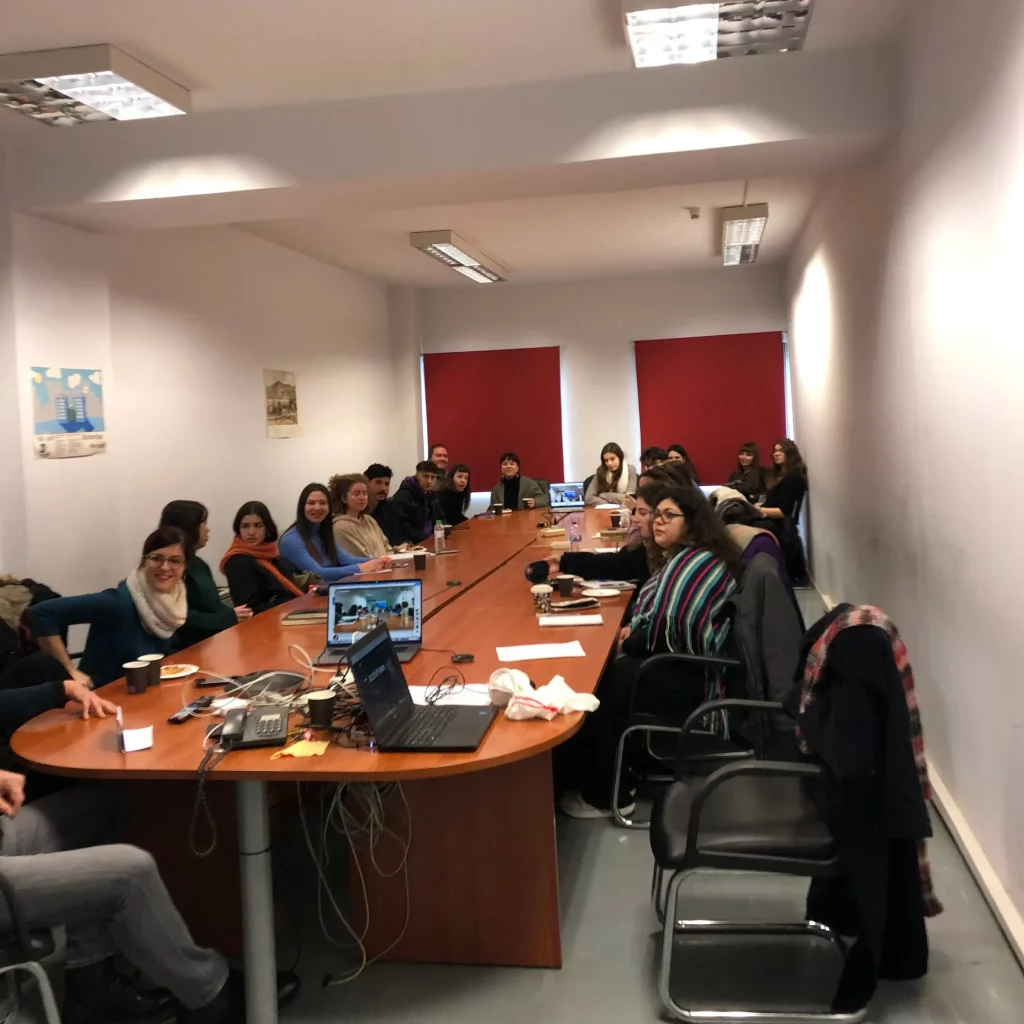
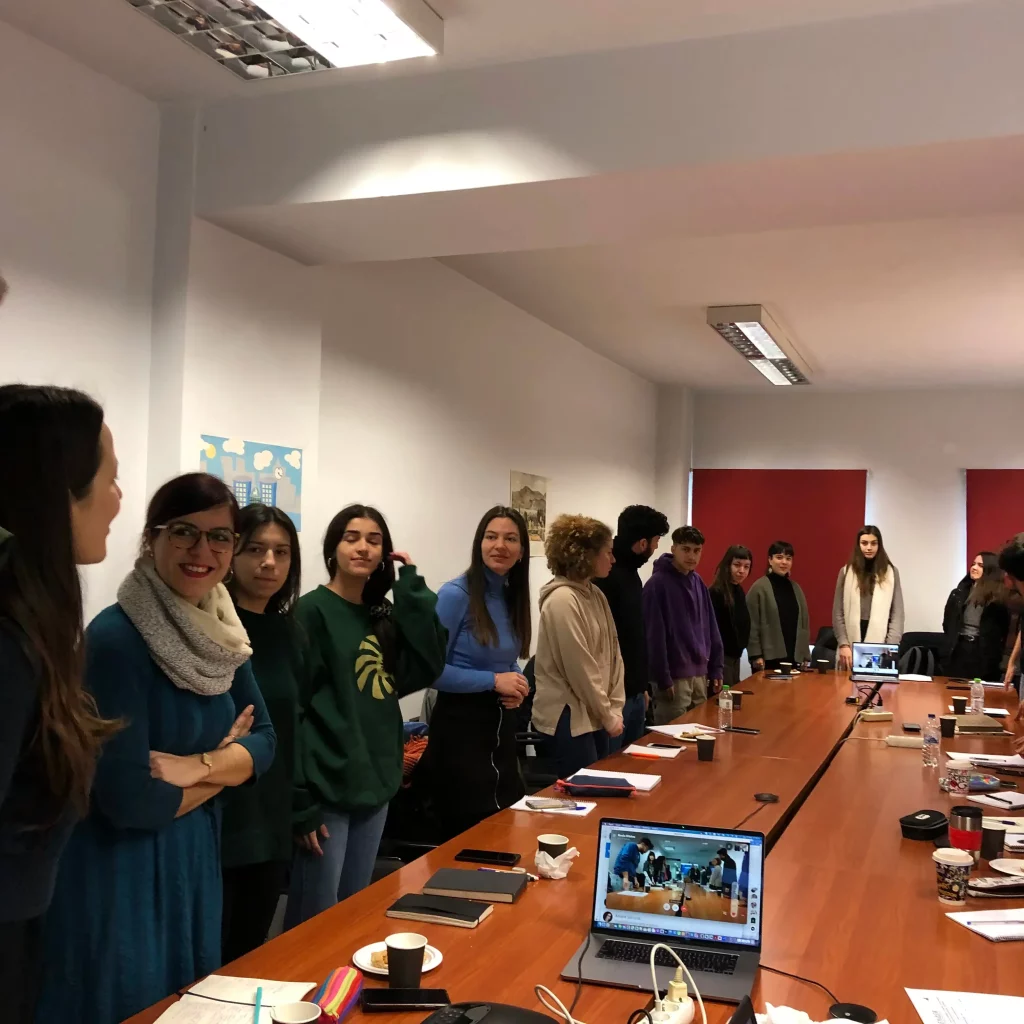
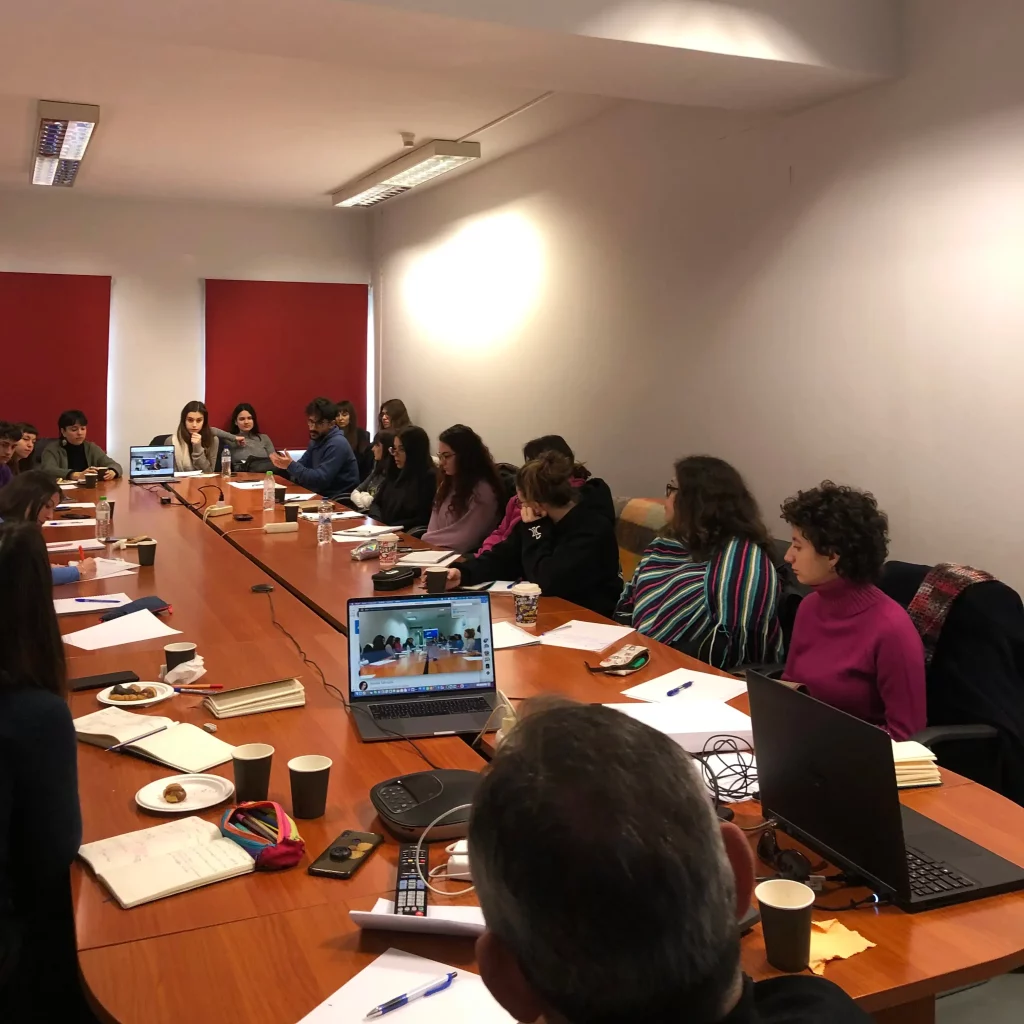
02
WorkShop #2
15 FEB. 2023
2nd Workshop
Educational policy in prison education & School in prisons
On Wednesday, February 15th of 2023, the second workshop was implemented. Mr. Ioannis Fovos, PhD candidate of mathematics literacy to young prisoners, found it very encouraging that young prospective teachers are interested in such a sensitive and special area of education, asking for the cooperation of the university with the penitentiaries. The interest of the trainees was focused on the operating conditions of the school units in the region, but also in general in the Greek territory, as well as on the legal framework that determines their operation, as well as that of their managers. Mainly, however, their greatest interest had to do with:
- the teachers who staff these school units,
- the way they are placed in these schools,
- the formal, but also the essential qualifications they must have,
- the educational tools available for their educational and teaching work.
- the difficulties faced by the teacher in his teaching, but also in his pedagogical work, having as students young prisoners, who often do not know the Greek language at a satisfactory level and there is a communication problem. as well as
- with teacher-student prisoner relationships and the limits that should be placed on them.
03
WorkShop #3
20 FEB. 2023
3rd Workshop
Intercultural communication
On Monday, February 20th of 2023, the third workshop was implemented. The speaker, Mr. Christos Govaris, Professor of Intercultural Education, began his presentation by asking the question “why do we communicate”. From the answers of the students, the discussion was led to two basic social theories about human communication which play an important role in understanding the importance of communication in educational environments. From the general view of communication, the students focused with the help of targeted questions from the lecturer Mr. Govaris on the special characteristics of intercultural meeting and intercultural communication. With the Social Theory of Identity as a framework, the social and individual factors that influence the dynamics of an intercultural meeting and respectively the results of intercultural communication were investigated. Then the basic elements and contents of intercultural communication skills were theoretically presented. In the last part of the presentation, the students were asked in groups to elaborate the theoretical knowledge previously presented in the case of an intercultural meeting/communication in detention conditions. The students presented interesting analyzes of all the dimensions that characterize such a special condition of intercultural communication and aptly developed the challenges and obstacles that the participants had to face and overcome.
04
WorkShop #4
22 FEB. 2023
4th Workshop
From formal pedagogy to adult education: Theories and practices
On Wednesday, February 22nd of 2023, the fourth workshop was implemented by Mr. Kostas Magos, Associate Professor of Intercultural education. The purpose of this workshop was to highlight the basic framework of adult education and especially the case of vulnerable learners, including prisoners. The presentation included several sub-modules such as: key characteristics of adult learners, teaching strategies for adults, managing a group of adult learners, as well as cross-cultural teaching issues in the context of adult education. Emphasis was placed on understanding the concept of intercultural competence of the adult trainer, while through a series of case studies the role of the adult trainer as a cultural mediator, and both as a trainer in the context of education programs in detention facilities, was understood. In the training workshop the prospective teachers had the opportunity to participate in working groups and analyze various good practices from adult education, but also to exchange and evaluate their own personal experiences as adult learners.
05
WorkShop #5
2 MAR. 2023
5th Workshop
Curriculum studies
On Thursday, March 2nd of 2023, the fifth workshop was implemented. Mr. Peter Appelbaum, Professor and Director of Education Studies and Art Education, met on Zoom for 3 hours with the university students, and had a delightful participatory workshop on Curriculum Studies theory and practice as related to the ACTinPrison experiences. Students responded well and shared many personal stories with each other in intimate, small groups, and with the larger group as a whole. They discussed in particular some concrete plans for how to think about and enact a positive relationship with the prisoners as co-researchers, grounding this in curriculum studies ideas that support such a perspective on research and practice. They ran out of time and the students invited Professor to return for a continuation of the workshop. He shared his contact information in case anyone would like to discuss the ideas further after the workshop.
06
WorkShop #6
3 MAR. 2023
6th Workshop
Language and languages at schools in prison
On Friday, March 3rd of 2023, the sixth workshop was implemented. Mrs. Roula Kitsiou, Assistant Professor of Sociolinguistics, and Mrs. Sotiria Kalbeni, PhD candidate of Linguistics to young prisoners, instructed this training which aimed to familiarize the prospective teachers with issues related to language education in prisons. First, issues related to the super-diversity in the modern world due to the movement of people and immigration and its impact on the prison population were discussed. From this starting point, prospective teachers were introduced to issues of multilingualism in prisons and asked to reflect on the role of literacy/ies in this context. They were encouraged to explore the role of literacies and multiliteracies in the context of prison education through a series of experiential exercises working in groups. At this stage they studied research data from researches conducted in prison schools in order to get to know literacy practices in these schools based on traditional teaching methods and aiming for monolingualism of the dominant language. Then, they were invited to critically approach these methods and familiarize themselves with the pedagogical approach of translanguaging which leaves spaces for the development of all language repertoires of the detained students, resulting in the emergence of their voice and identity. The prospective teachers were very actively involved throughout the training, either by actively participating in the groups, or by participating in educational techniques such as brainstorming and discussion. At the end of the training, shifts in the prospective teachers’ perspectives were observed as they understood that the transition from traditional methods to translanguaging practices is a challenge in the field of language(s) learning in prisons.
07
WorkShop #7
7 MAR. 2023
7th Workshop
Mathematical & technological literacies
On Tuesday, March 7th of 2023, the seventh workshop was implemented.
The coordinator of the project, Mrs. Charoula Stathopoulou, Professor of mathematics education, began by sharing a video focusing on Culturally Responsive Mathematics Instruction, from the ‘Math in Your Life Project’ (video here). She asked the students to use an evaluative and interpretive perspective on the video, facilitating a discussion about the potential for a culturally responsive approach to mathematics in their upcoming work inside the prison. A majority of students were surprised by the connection of mathematics with cultural, social and political dimensions, bringing a normative and dominant perspective about mathematics as culturally neutral to the discussion. The professor next introduced ideas of Ethnomathematics as a framework for several illustrative examples of mathematics literacy development with non-mainstream students. Following this training workshop, the prospective teachers’ comments and questions provided evidence that their intuitive understanding of mathematics had been challenged. This established a common vocabulary and discursive context for subsequently rethinking the complexity of mathematics teaching, especially in a culturally diverse context like a prison.
At the second half of the workshop Mr. Vangelis Katsigiannakis, PhD candidate of e-learning and gamification in special education, led the training session on digital literacy and digital skills for prospective teachers with an entry-level presentation which provided an accessible and comprehensive overview of essential digital competencies, fostering a deeper understanding of their importance in education. The primary goal of the presentation was to equip prospective teachers with foundational knowledge and skills necessary for integrating technology effectively in the classroom. The training session was marked by active participant engagement and relevant questions from attendees. The discussions that ensued provided insights into the unique needs and interests of prospective teachers regarding digital literacy and skills. Attendees appreciated the simplified explanations and the practical examples provided throughout the presentation.
08
WorkShop #8
17 MAR. 2023
8th Workshop
Art in prison
On Friday, March 17th of 2023, the eighth workshop was implemented by Mrs. Maria Karazanou, PhD candidate of Drama in Prison Education. The workshop focused on arts and theatre in the criminal justice system. The training lasted for almost three hours in which participants had the opportunity to learn and discuss about several issues that are linked with arts and theatre education in prison such as: the ways in which the arts can help improve inmates’ lives and promote their educational identities, several arts and theatre projects that are taking place around the world and their transformative potential, performative elements already found in the prison and social justice system and what effects they have in our conceptions and understandings of crime, judgement, punishment and prison, different approaches in applied theatre, suggested methods and techniques and their scholars, and lastly, previous projects implemented by the research group. Participants were encouraged to ask questions at any time and suggest their own ideas and thoughts and were invited to try some of the games and the exercises themselves.
